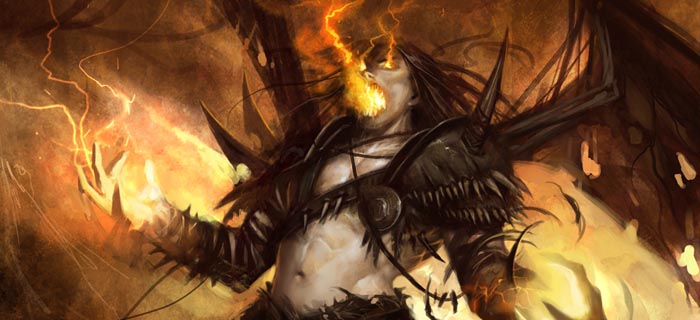The Curse of the Golden Wrench – Part 1
 Somewhere, high above the Kalihari Desert, a rusty, single-engine plane completes its daily route from Mbasa to one of several nearby destinations. The plane chugs along steadily, with just the amount of hesitance one might expect of a 10-year old aircraft. The pilot, a nondescript fellow of Australian heritage (colonial, not Aboriginal) sweats profusely as the glaring heat of the African sun beats down on his little Daedelan contraption. The pulsing orange god bears its defiance begrudgingly, but continues to spare its existence.
Somewhere, high above the Kalihari Desert, a rusty, single-engine plane completes its daily route from Mbasa to one of several nearby destinations. The plane chugs along steadily, with just the amount of hesitance one might expect of a 10-year old aircraft. The pilot, a nondescript fellow of Australian heritage (colonial, not Aboriginal) sweats profusely as the glaring heat of the African sun beats down on his little Daedelan contraption. The pulsing orange god bears its defiance begrudgingly, but continues to spare its existence.
Thousands of feet below, nestled in the great gravel sea, a tribe of nomads play. Raised on the bounty of the land and the gifts of the sky spirits, these simple people know nothing of conflict, nor of the magical artifice contrived by the outside world. The sun rises; they wake. The sun mounts at its apex; they hunt. The sun reposes; they eat, share, and laugh. The sun sleeps; the people sleep. And every now and then a loud carrion bird soars overhead. It fills the landscape with a droning like that of wasps, but never does it land, nor circle, nor flap its wings.
At 10:50 AM, Wednesday, the single-engine airplane sputters. Dozens of meters and instruments vacillate rapidly from “high” to “low,” and from various numbers to “0.” One meter in particular, drops slowly, but unrelentlessly. One meter in particular catches the pilot’s eye as it ticks irrevocably towards “0.” The meter is rusted, cracked, and dusty, but even under a decade of sand and grit, one can make out the label, “Fuel.”
At nearly the 11th hour of morning, Jumatano, nine brethren set out for the First Hunt. Clad only in the red-and-blue-dyed skins of their game, each knows that today’s success is vital to the continued prosperity of the greater clan. As each day grows longer in eager anticipation of the solstice, so too does the interval between successful hunts. The vast dustbowl becomes less hospitible to deer, boar, and even razorback snake with each new sunrise.
Far overhead, a large buzzard soars aimlessly. It dips and shakes, flying unsteadily, quivering with fear. The heat and hunger overtaking its body are obvious, even from ten thousand paces distant. And, if one were to guess, any of the tribe would say the mighty carrion bird appears as thirsty as every other creature under the sun.
 “You don’t understand, Mr. Mann. I’m going down. Your shipment will not be arriving today.” The pilot squeezes his words between his shoulder and a grimy satellite phone as a dozen lights and dials signal their highest priority alerts.
“You don’t understand, Mr. Mann. I’m going down. Your shipment will not be arriving today.” The pilot squeezes his words between his shoulder and a grimy satellite phone as a dozen lights and dials signal their highest priority alerts.
“The fuel tank’s rusted out and leaking; I’ve got enough for seventy miles, maybe eighty. I need a hundred ten, and that won’t happen unless this piece ‘o piss can actually run on piss.”
Somewhere behind the instrumentation, a particularly important and fickle wire snaps in half.
“No, there is no other option. I’m dumping them. All 100. You can take’em out of my paycheck. Hell, you can take’em outta my ass if you’re half as tough as you think you are.” He hesitates. “Sir.”
If there were a response on the other end, it wouldn’t matter. The decision is made.
With the butt of a worn rifle, the pilot props the controls steady, then saunters rearward. The small cargo area is crammed with four gigantic cartons, each stamped with a needlessly long string of letters, numbers, and symbols. Prying the first container open, the pilot is immediately blinded. The glare of the sub-Saharan sun reflects off the countless facets of the twenty-five gleaming instruments inside. Averting his eyes, the pilot grabs them, one by one, and tosses them out the long-broken observation window. One by one, he drops each of the heavy, accursed, golden wrenches. One by one they plummet, forming a deadly, shimmering shower.
 Lying in wait, the tribesmen have found suitable prey. The water buffalo is a large bull, somehow estranged from its kin, lapping at a puddle that was once a vast watering site. The hunters advance silently, carefully. If the bull escapes, their village starves. From behind a wall of sandstone, their mightiest warrior leads them. He wears the mask of ceremony, designed to stupefy his prey. He carries the axe once brandished by his great forefathers. He rarely speaks, and when he does, his language is like that of the gods: cryptic, powerful, ageless.
Lying in wait, the tribesmen have found suitable prey. The water buffalo is a large bull, somehow estranged from its kin, lapping at a puddle that was once a vast watering site. The hunters advance silently, carefully. If the bull escapes, their village starves. From behind a wall of sandstone, their mightiest warrior leads them. He wears the mask of ceremony, designed to stupefy his prey. He carries the axe once brandished by his great forefathers. He rarely speaks, and when he does, his language is like that of the gods: cryptic, powerful, ageless.
There stands the bull, thirty paces.
Twenty paces. This is the moment to strike. The warrior signals his brethren to his mark.
The winds shift. The buffalo’s nostrils flare. Nothing moves except the gaze of the bull, and the frenzied hearts of its predators. Overhead, the buzzard of the gods circles.
Suddenly frightened, as if sensing death, the water buffalo rears. Its hooves create a storm of dust in every direction. Its muscles buldge, consuming the cloud of sand. And in that moment, it takes off. With its retreat, hope dies in the hearts of the tribesmen.
But, as if by the sky spirits’ hands, lightning fills the endless sea of sand. A golden bolt of light, a single spark, falls from the heavens. It strikes the bull with such force that the great beast is immediately vanquished, its once powerful skull cleaved in two. Frightened and awed, the tribe approaches the carcass slowly. It appears the spirits have seen fit to save them, after all. It appears they will dine, not only tonight, but also tomorrow. Their kin will cheer them, and their children will play under another moon in safety.
 Together they toil, and together they will feast. As they carry the corpse of the great water buffalo upon their backs, something lodged inside the beast’s belly beckons them. Something ancient and powerful. Something capable of tearing apart even the most closely knitted community.
Together they toil, and together they will feast. As they carry the corpse of the great water buffalo upon their backs, something lodged inside the beast’s belly beckons them. Something ancient and powerful. Something capable of tearing apart even the most closely knitted community.
It waits. It bides its time.
It will destroy them all soon enough.
[Look out for Part 2 coming later this week!]







Wouldn’t the water buffalo turn to gold and starve the village?
[…] [Continued from Part 1] […]
Не могу со всем согласится, но в целом правильно сказано.
Я тоже копал в этом направлении, и кое какие наработки есть.
Что я могу сказать, над вышесказанным стоит хорошенько поразмыслить.
Автор молодец, проделал немаленькую работу, так держать.
А что остается делать, ведь многие этого просто не понимают.
Что я могу сказать, над вышесказанным стоит хорошенько поразмыслить.
Nice Russian poem, Crag. Yeah it’s in Russian. I know Russian, so I decoded it and it means this.
I can not agree with everything, but on the whole correctly stated.
I also dug in this direction, and something which is of use.
What can I say, over the above is a good reflection.
Author fellow, has done a rather big job, keep it up.
And what remains to do, because many just do not understand.
What can I say, over the above is a good reflection.